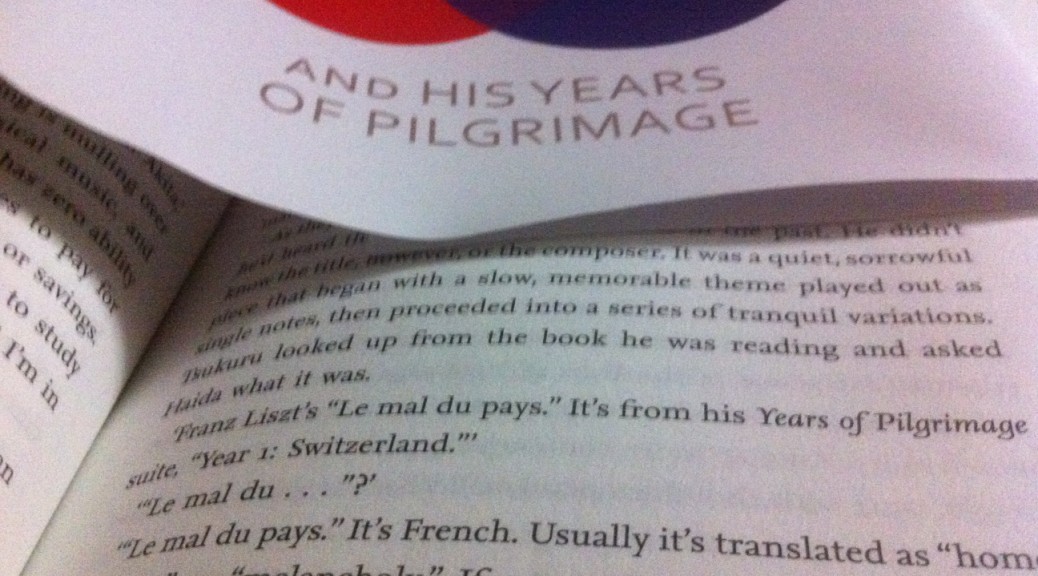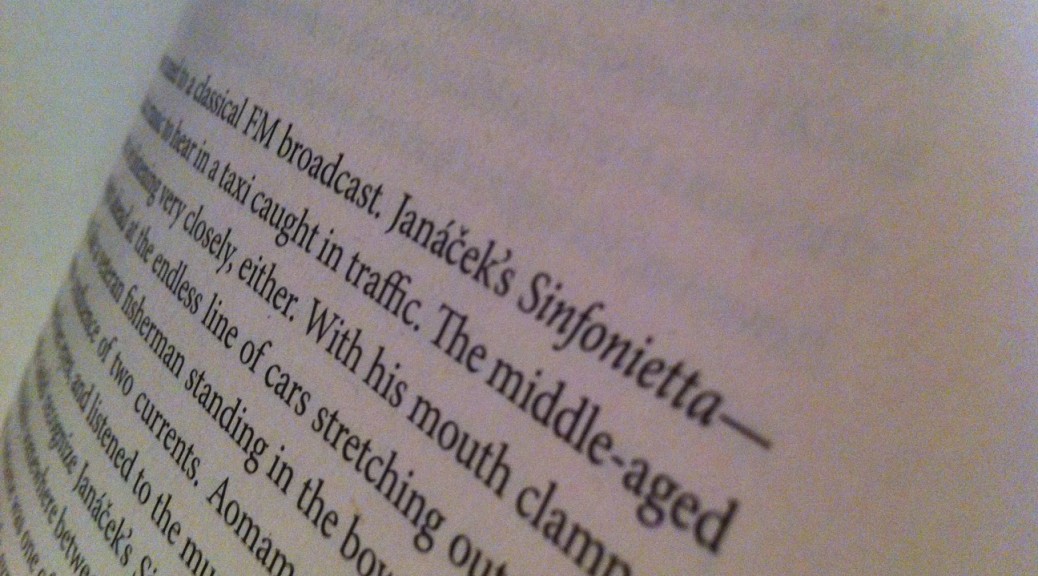Franz Liszt – Years of Pilgrimage (Annees de pelerinage)
Whenever Haruki Murakami mentions a piece of music in one of his books, interest and sales in that music spikes. He usually picks music with emotion and drama, and years of pigrimage is no exception.
Lizst’s Year of Pilgrimage was referenced within, and in the title of, Murakami’s latest book Colorless Tsukuru Tazaki and His Years of Pilgrimage, released in english translation in 2014. Murakami name checks these three piano suite’s and in particular Le Mal du pays, a piece from the Swiss suite.
Lizst’s The years of pilgrimage was originally titled with reference to a novel by Goethe, Wilhelm Meister’s Journeyman Years, which was originally referred to the years of wandering in the title.
Lizst’s work came from the period of the romantics and is full of tracks dedicated to famous people of the time like the Emperor Maximillian, references to works by other artists such as Byron, Petrach, artworks by Raphael and Michelangelo, Dante, biblical quotes, family members and nature. Despite the works not straying from piano they encompass a scope of emotion and thinking prevalent at the ideas. His fields of reference point to a well educated man with exposure to the best art and literature available at the time.
The three pieces contained have drama, and different moods having been written over four years.
Released
1838
Lyrics
No lyrics just lots and lots of piano
Mood
There is a real dramatic sweep to the different pieces of music in these suites. It drags me along, but as the three suites were written over two or three years there is a range of moods , which is good for writing.
Good to work to
I find the range of emotion and pace contained in the years of pilgrimage to be perfect for my writing. When I write I go through periods of pace and others of reflection. The music takes me away from the distractions that surround me, and can drive me on when I’m writing. I don’t always stick to the pace of the music, but if I’m not feeling inspired the different pace points can kick start me. Once I get into a bit of a flow I’m often oblivious to the music, but when I stall I can lean on its rhythm to get me moving.
Like
I’m not an expert in classical music so you’re on your own. Haruki Murakami is a fan of dramatic classical music and one of the others he name checks that I find works for writing is Janacek’s Sinfionetta. The Sinfionetta is perhaps a more dramatic work, with horns and a full orchestra, but they both work the same way, going through a range of moods and great to work through.
The Artist/s
Franz Liszt (1811 to 1886) is one of the big guys of classical music. He was a Hungarian composer, conductor, and mazing pianist. He learnt from Saleri in Vienna and through him got access to Hungarian and Austrian aristocratic circles. In those days they were the best paying clients. As with many famous composers of the day he would tour the European courts. He was a superstar of the day and hung out with the leading artists of the day like Heinrich Heine, and Victor Hugo. He had a life full of glamour, affairs, and celebrity, to the extent his fame was called Lisztomania.
Unlike many others in his position he was able to wind down from performing and concentrate on composition. He was a patron of other artists like Wagner
Other works
Liszt was a prodigious composer. He was a working musician and was singing for his supper. I could keep writing in this vein, but I have no idea. Instead I’d refer you to some other classical works Murakami recommends, or some other classical music that works for writing.
Where Can I buy it, and in what formats
You should be able to get this in most formats. Murakami makes the point that like most classical music the performer effects the performance. If you’re after the particular version that Murakami mentions which is performed by Lazar Berman. Later on he mentions another performance, and like all classical music there are different styles of performance and they’re all pretty good.
The Verdict
This is a great piece to work to. It picks you up and then moves through the emotions. There are three suites so you can pick what works for you or listen to all three.

